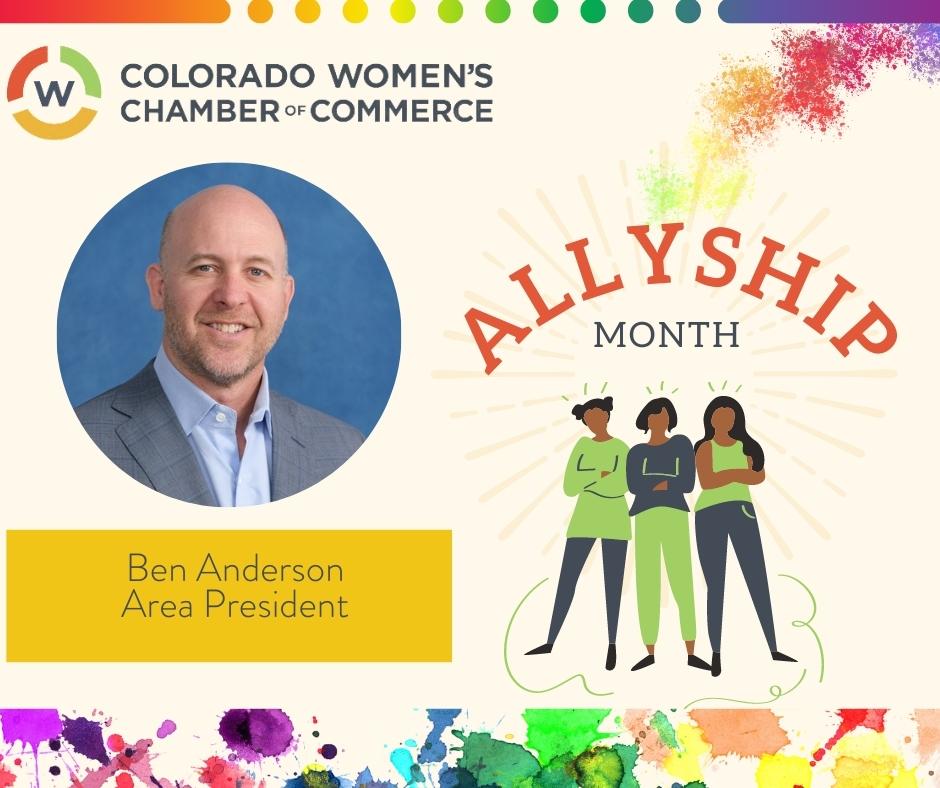Allyship Spotlight: Ben Anderson
This June, the CWCC is celebrating #ALLYSHIP in all of its forms. If you have ever experienced being the “only” in a room or identified as an “other,” you understand the power of having allies who recognize injustices and oppressive cultures that must be overcome.

Throughout the month, we’re going to share the stories and profiles of people who have stood up to these injustices and spoken up on behalf of colleagues, friends, and family members to help them reach new heights. Today, we interview and give a big shout-out to:
Ben Anderson
Arthur J. Gallagher Area President
Why is it important to advocate and take action to support the advancement of women in work?
At the simplest level because it won’t get us where we should be if there isn’t advocacy. In any situation where there is a majority culture people from that group need to step into the gap and advocate for the minority culture. As a parent in a trans-racial family, this goes beyond just women in the workforce.
As a child that grew up with a single mom who worked multiple jobs, I saw firsthand the limits in opportunities that she faced and I will do what I can to open those doors and knock down barriers. I still see so many situations that are not ok and when I look at my daughters I want to them to see someone that did what they could to create more opportunities.
“When I look at my team I want them to know someone is fighting for them and creating opportunities.”
How can other men act as allies for women in business?
In no particular order…
- Honor and call out situations where women are not being treated equally.
- Be willing to fight some of the corporate rules that can work against minority groups. For example requirements for college degrees. Many moms that had children young may not have had that opportunity. Interview for the “who” and not the “what.” Waive the requirement and hire the right person.
- Recognize your own internal bias whether it is conscious or unconscious. Be open with them and give people permission to call them out. I know I will make mistakes and because I have been clean and trustworthy about my intent there are opportunities for real impactful conversations.
- I found myself having mostly male mentors and was very intentional to find female mentors as well as seeking out female and minority group opinions.
- Review your compensation metrics to ensure they are balanced and any existing gender disparity is fixed.
- Take chances because it’s the right thing to do. Make sure you leave hiring pools open to include diversity and be willing to hire people with less experience if its the right person. It might take more work mentoring but if you believe in your organization and having the right people on the team it is worth it many times over.
- Be approachable for tough conversations. Providing people the opportunity to truly be heard is so powerful.
- Don’t be afraid of the hard stuff or to call it out. You don’t have to have all the answers but be willing to engage and be uncomfortable.
- Recognize that many women face different challenges such as often being the primary caregiver in the family so think about what that means and bring awareness to it. Create awareness around when meetings are scheduled and school schedules, etc.
Share this article:
Other Articles
